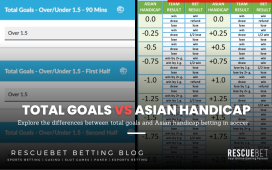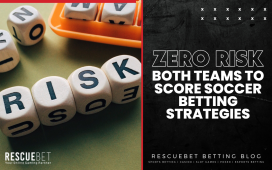The Maria staking plan is a bankroll management system that impacts the betting system a punter chooses to adopt. The Miller betting system shares several similarities with the Maria staking plan. Both betting systems are efficient bet-sizing strategies punters decide to adopt to make different types of wagers. The Maria strategy became famous after a player named Maria started with a $3000 wager and managed to turn that into $100,000 in less than one year, adopting a bet sizing and bankroll management betting strategy. The name Maria is an online name and may not represent the player’s real name. Maria mostly bet on horse races to make consistent profits. Today, most online bettors adopt a variation of the Maria staking plan when making wagers. Punters also adopt the same strategy for casino games, sports betting, and esports wagers.
Example Of Maria Staking
A punter can start with a bankroll of $100 for this example. In the original strategy, Maria began with $3000 initially and increased wagers over the next few months. However, a punter can use any number that’s easy to track and calculate. The Maria staking strategy requires a punter to wager 1% of their dedicated bankroll on the starting wager. However, the 1% wagered amount isn’t a fixed amount; neither is it a fixed percentage. A punter can choose to decrease their stake percentage after a loss or increase it to a maximum of 1% after a win.
A punter can choose to calibrate the stalking amount in a Maria staking plan if they go below 65% of the funds they started with or above 140% of their invested funds. With 65% of the betting funds left, a punter is likely to have $65 remaining. Calibrating 1% of $65 equals 0.65 cents. On the other hand, if a punter is in the profit, they will be at $140. Calibrating according to the Maria plan, a punter is required to wager 1% of $140 or $1.40 on the next wager. Alternatively, a punter can choose to wager between 0.4% to 0.8% of their betting bankroll after a loss to avoid maximum losses during losing streaks.
Betting Strategy Versus Staking Plan
A staking plan enables a punter to bet size or manage how much they wager on each bet. A staking plan also enables efficient management of a punter’s funds to either secure profits or minimize losses and, in some cases, both. A stake is a punter wager in a casino game round, such as blackjack or a single chance on a sports bet like a football match. A betting strategy entails a deeper analysis of how a punter chooses to make a wager, the type of wager selected, the betting markets to participate in, and the level of risk undertaken. A bankroll strategy may be a part of a more comprehensive betting strategy but not several betting strategies. If a punter selects a betting strategy without specifications on bankroll management, then a punter needs to find the best management strategy through trial and error.
Features Of Maria Staking Plan
Punters utilizing any betting strategy have to navigate through the advantages and disadvantages of those strategies or plans. Some of the key features of the Maria staking plan include lesser losses, capped gains, variable odds, and high hit rates.
1. Lesser Losses
The Maria staking plan limits the number of losses a punter can lose on wagers. Because the staked amount decreases after losses, a punter is unlikely to lose their entire bankroll even after 100 consecutive losses.
2. Limited Cap On Gains
The Maria staking plan also has a limited cap on the maximum gains from each wager. With a 1% stake on each bet, the maximum winnings aren’t as high as staking 5% or 10% of a punter’s bankroll.
3. Variable Odds
The Maria staking plan may be hard to implement on sports betting events with variable odds. Because a punter has no control over the odds and the game provides those odds, finding the correct odds matches the strategy.
4. High Hit Rates
While Maria made her money wagering on horse races, it required a high strike rate of over 85%, which can be very hard for a punter to achieve consistently. Moreover, horse races have multiple racers and outcomes for each wager.
























